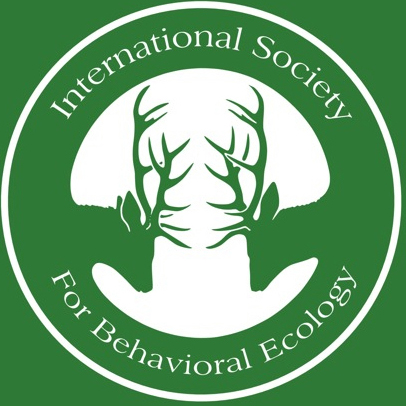Interactive Program
Below you can switch days and click each session to view more information, as well as access the abstracts of the presenters. To the right there is an instruction on how to use the schedule.
A pdf version of the conference guide, including a list of conference delegates, is available here.

Hamilton Lecture
We are delighted to announce that Professor Hanna Kokko has been awarded ISBE’s highest honour and will deliver the Hamilton Lecture at ISBE 2022!
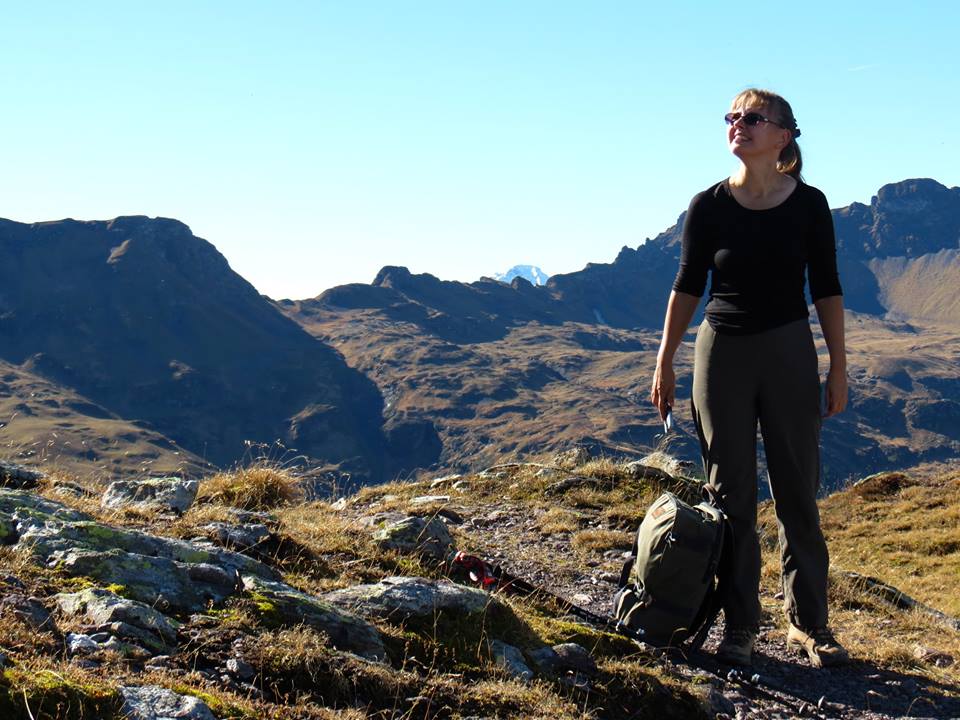
Getting to know Hanna Kokko
Hanna Kokko is a professor of evolutionary ecology at the University of Zurich. She finished her PhD at the University of Helsinki in 1997, did postdoctoral studies at Universities of Cambridge and Glasgow. She has held faculty positions and fellowships at Jyväskylä and Helsinki, as well as the Australian National University, before taking up her current position in Zurich (Switzerland) in 2014. She is primarily a theoretician — but one who loves working with empiricists and also, in her own work, hopes to improve communication between these approaches.
Her research focuses on a variety of topics, ranging from sexual reproduction and sex role evolution to space use, dispersal and migration, social evolution, interspecific interactions and life history theory. These endeavours have been recognized with prizes such as:
- ASAB’s Outstanding New Researcher Award
- The British Ecological Society’s Founders’ Price
- The Oikos Per Brinck Award
More recently, she has become a distinguished invited member of academic societies in three different countries:
- Finland (Academia Scientiarum Fennica)
- Australia (Australian Academy of Science)
- and the USA (American Academy of Arts and Sciences).
In 2022-2023, she will serve as the non-North American Vice President of the Society for the Study of Evolution. In addition to her scientific work, she contributes to outreach in a variety of ways; her popular science book (available in Finnish and Swedish) gave rise to various forms of recognition given jointly to the authors Katja Bargum and herself, such as the Finnish Cultural Foundation’s Grand Prize, and the Finnish National Knowledge Dissemination prize.
In 2022, she will be enjoying a sabbatical break from her usual duties, so the ISBE meeting will hopefully see her in a particularly refreshed state of mind ready to engage with all the ideas that the meeting participants will throw her way!
Plenary Speakers
Redouan Bshary
University of Neuchâtel, Switzerland
Getting to know Redouan Bshary
Who am I? Redouan Bshary. I am a professor in behavioural ecology at the University of Neuchâtel.
What are your main research interests?I am interested in the evolution of helping between unrelated individuals.
How do you study this?In order to avoid any confounding effects of kin selection, I largely study mutualisms between species. My favourite study organism is the cleaner wrasse Labroides dimidiatus. This little fish removes ectoparasites from so-called client fishes. As cleaners prefer to eat the protective mucus layer, clients need to make cleaners feed against their preference to get a good service. Initially, I investigated the different game structures played between cleaners and different types of clients. This research showed that we need a diversity of concepts and corresponding mechanisms to understand how cheating can be kept in check. The results emphasize the limited explanatory power of the predominant game-theoretical model of cooperation, the iterated prisoner’s dilemma game. More recently, I am focusing on the cognitive and physiological mechanisms underlying cooperative decision-making. In my view, the greatest challenge is to understand how these mechanisms may evolve as a function of ecological needs, and under which circumstances they may constrain the expression of adequate behavior, in order to understand intra- and interspecific variation in levels of cooperation.
What can we look forward to hearing about in your plenary lecture at ISBE 2022 in Stockholm?I will describe how to put biology into game theoretic models of cooperation
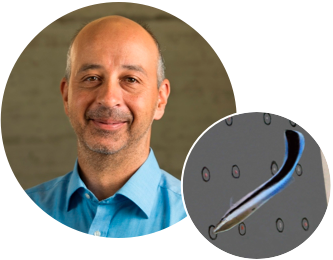
Mariella Herberstein
Macquarie University, Australia
Getting to know Mariella Herberstein
Who am I? Mariella Herberstein. I am a professor in the Department of Biology at the Macquarie University.
What are your main research interests? I am interested in all aspects of spider behaviour – from sexual selection through to predator-prey interactions, deception and mimicry.
How do you study this? For some time, spiders have been underestimated as intriguing and suitable models for a variety of evolutionary questions. My research highlights the extraordinary and often bewildering complexity of spider behaviour. This includes significant intra and inter-individual variation in web building behaviour, the ability to learn, and the ability to adjust the protein composition of silk. My edited book on spider behaviour summarises my efforts to emphasise the significance and versatility of spiders as model systems. Of course, one cannot be interested in spiders without studying their mating behaviour. In many species, female control large aspects of mating and males are severely limited in life-time mating opportunities because of sexual cannibalism and genital damage and, to add insult to injury, spider sperm are immotile. More recently, I have been pondering how behavioural research could be scaled to incorporate variation across landscapes and by mapping behaviour into trait spaces.
Where do you do your research? Australia is an excellent place to study spiders and other intriguing invertebrates. Australia also seems to be a hotspot for deception and together with colleagues I investigate deception via colour in several spider species, deception via scent and colour in orchids (if one considers orchids to be an invertebrate), as well as deception of spiders by mimicking ants.
What can we look forward to hearing about in your plenary lecture at ISBE 2022 in Stockholm? I would be remiss not to showcase spider behaviour, but I will also attempt to be forward looking and anticipate the future of behavioural ecology research.
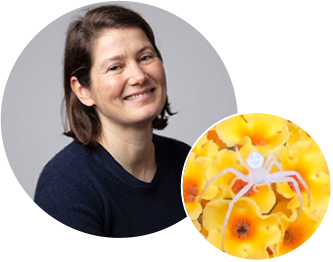
Toshitaka Suzuki
Kyoto University, Japan
Getting to know Toshitaka Suzuki
Who am I? Toshitaka Suzuki. I am an assistant professor in the Hakubi Center for Advanced Research at Kyoto University.
What are your main research interests? I am primarily interested in the fields of animal behavior, communication, cognition, and language evolution.
How do you study this? I have been studying vocal communication of wild birds in Japan for 16 years. While I have studied many bird species, the main focus of my works is the Japanese tit (Parus minor). In addition to using standard behavioral observations and audio playbacks, I have developed novel experimental paradigms to uncover the cognitive processes of animal communication. With this approach, I have demonstrated several key components of language in Japanese tits, including compositional syntax, grammatical rules, and visual mental imagery. I aim to establish a new scientific discipline for comprehensively understanding evolutionary principles of communication, including language.
What can we look forward to hearing about in your plenary lecture at ISBE 2022 in Stockholm? I will describe how linguistic features can be explored in wild animals, and how this approach contributes to understanding the origins and evolution of human language.
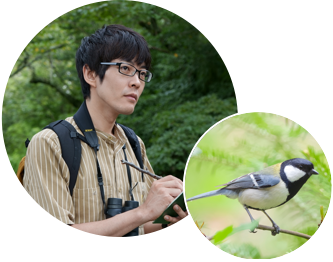
Jenny Tung
Duke University, USA
Getting to know Jenny Tung
Who am I? Jenny Tung. I am an Associate Professor of Evolutionary Anthropology and Biology at Duke University and an affiliate of the Duke Population Research Institute and the Center for Genomic and Computational Biology.
What are your main research interests? I focus on the intersection between behavior, social structure, and genes.
How do you study this? I study how affiliative and competitive interactions influence how genes are regulated; these links may help us to understand why the social environment so commonly influences health and lifespan. I’m also interested in how behavioral processes, like mating and social affiliation, influence longer-term evolutionary processes. My work concentrates on social mammals, especially nonhuman primates. For example, much of my lab’s research focuses on wild baboons in the Amboseli ecosystem of Kenya, as part of the long-term fieldwork conducted by the Amboseli Baboon Research Project. We also use experimental manipulations in captivity to ask about how the social environment causally affects molecular and physiological outcomes.
What can we look forward to hearing about in your plenary lecture at ISBE 2022 in Stockholm? I’ll talk about our work on the genomic signatures of social interactions in baboons and rhesus macaques, including how these signatures help us understand the role of sociality in primate evolution.
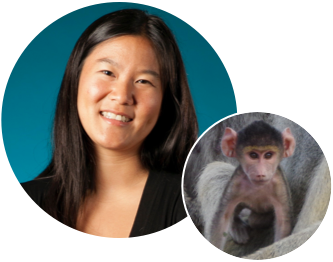
Yossi Yovel
Tel Aviv University, Israel
Getting to know Yossi Yovel
Who am I? Yossi Yovel. I am a professor in the School of Zoology and the Sagol School of Neuroscience at Tel Aviv University.
What are your main research interests? I am interested in a wide range of fundamental behaviors, including long and short-range navigation, social networks and collective behavior, sensory decisions making, inter-sensory integration, vocal communication as well as bio-sonar and bio-inspired robotics.
How do you study this? My research focusses on bats. Bats are extreme aviators and amazing navigators. Many bat species nightly commute dozens of kilometres in search of food, and some bat species annually migrate over thousands of kilometres. Studying bats in their natural environment has always been extremely challenging because of their small size (mostly <50 gr) and agile nature. We have recently developed novel miniature technology allowing us to GPS-tag small bats, thus opening a new window to document their behaviour in the wild. We have used this technology to track bat pups over 5 months from birth to adulthood. Following the bats’ full movement history allowed us to show that they use novel short-cuts which are typical for cognitive-map based navigation. Using miniature microphones placed on the, we can also infer their foraging success and social behaviour. This novel technology thus allows us to document and model foraging decision making in real-life large scale and over long time periods.
What can we look forward to hearing about in your plenary lecture at ISBE 2022 in Stockholm? I will describe how animals make foraging decision in the real world – from a bat’s point of view.
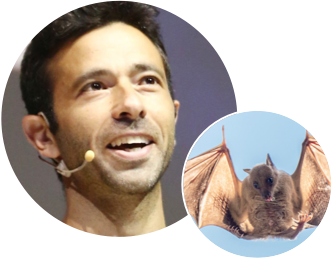
Contact
General questions
Contact the conference bureau, Meetagain
ISBE2022@meetagain.se | +46 8 664 58 00

